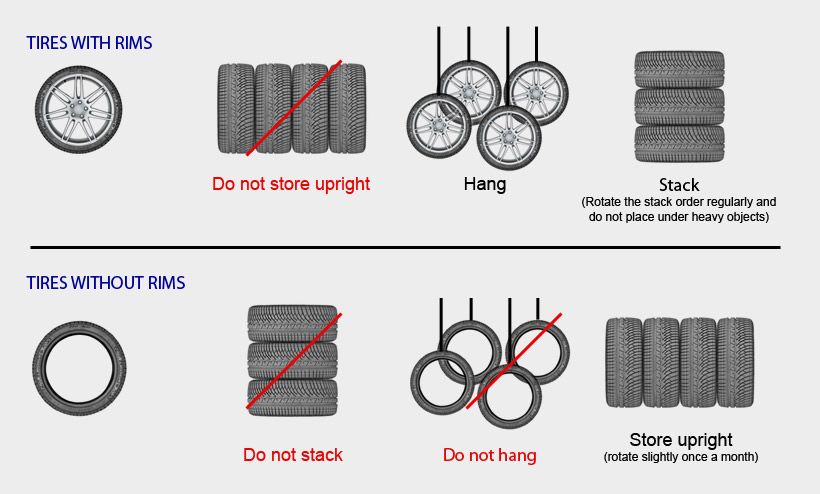STORAGE
Keep a check on tires not in use!
Tires age even when they're not being used. Surface cracks appear in the rubber and the carcass can distort. Proper storage increases the life expectancy and performance of tires.
FEW RULES NEED TO BE FOLLOWED
Tires should always be stored:
in a well-ventilated, cool, dry area, away from direct sunlight and adverse weather conditions,
away from any chemicals, solvents or fuels that may affect the rubber,
away from any object capable of penetrating the rubber (pointed metal or wood),
away from any sources of heat or flames and any substance that could cause sparks or an electrical discharge,
away from any source of ozone (home ozone generators, electrical appliances and air pollution). Powerful oxidant causes premature corrosion of the elastomers, which then crack.
Storage guidelines vary, depending on whether your tires are mounted on rims or not.
